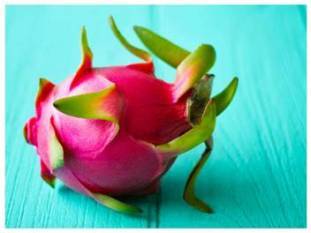NEW DELHI, 26 June 2021: In a major boost to the export of exotic fruit, a consignment of fibre and mineral-rich ‘Dragon Fruit’, also referred to as Kamalam, has been exported to Dubai.
A consignment of Dragon Fruit for exports was sourced from the farmers of Tadasar village, Sangli district, Maharashtra, and it was processed and packed at The Agricultural and Processed Food Products Export Development Authority (APEDA) recognized exporter M/s Kay Bee.
Scientifically referred to as Hylocereusundatus, the dragon fruit is grown in countries such as Malaysia, Thailand, the Philippines, the USA, and Vietnam.
Dragon fruit production commenced in India in the early 1990s and was grown as home gardens. Dragon Fruit has become increasingly popular in recent years in the country as it has been taken up for cultivation by farmers across various states.
At present, dragon fruit is grown mostly in Karnataka, Kerala, Tamil Nadu, Maharashtra, Gujarat, Odisha, West Bengal, Andhra Pradesh, and Andaman and Nicobar Islands. The cultivation requires less water and can be grown in various kinds of soils. There are three main varieties of dragon fruit which include white flesh with pink skin, red flesh with pink skin, and white flesh with yellow skin.
Prime Minister Narendra Modi in ‘Mann Ki Baat’ programme in July 2020 on All India Radio had mentioned dragon fruit farming in the arid Kutch region of Gujarat. He had congratulated the farmers of Kutch for the cultivation of fruit for ensuring India’s self-sufficiency in the production.
The fruit contains fiber, vitamins, minerals, and antioxidants. It can help in repairing the cell damage caused by oxidative stress and reduce inflammation, and also improving the digestive system. Since the fruit has spikes and petals resembling a lotus, it is also referred to as ‘Kamalam’.
APEDA promotes exports of agricultural and processed food products by providing assistance to the exporters under various components such as Infrastructure Development, Quality Development, and Market Development. Apart from this the Department of Commerce also supports exports through various schemes like Trade Infrastructure for Export Scheme, Market Access Initiative, etc.




















